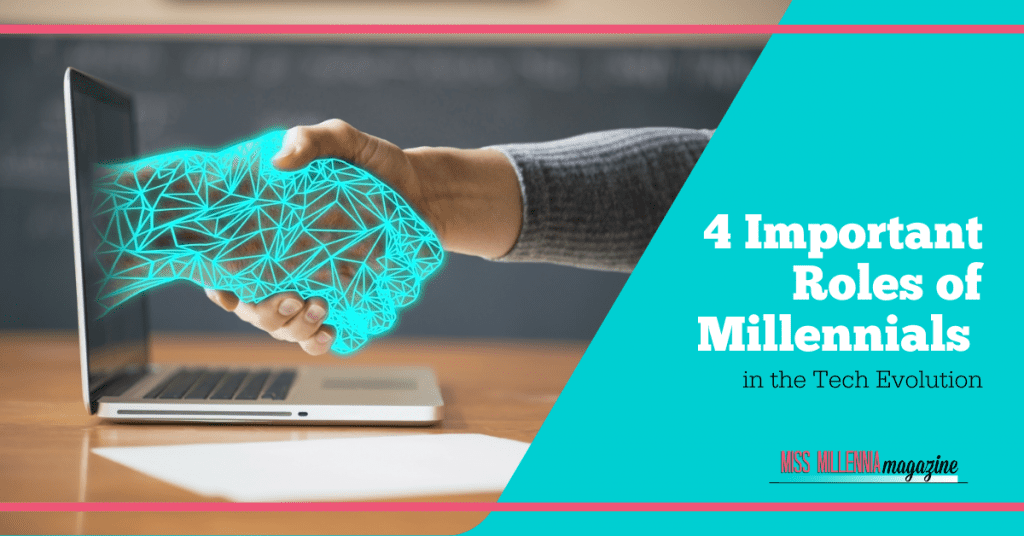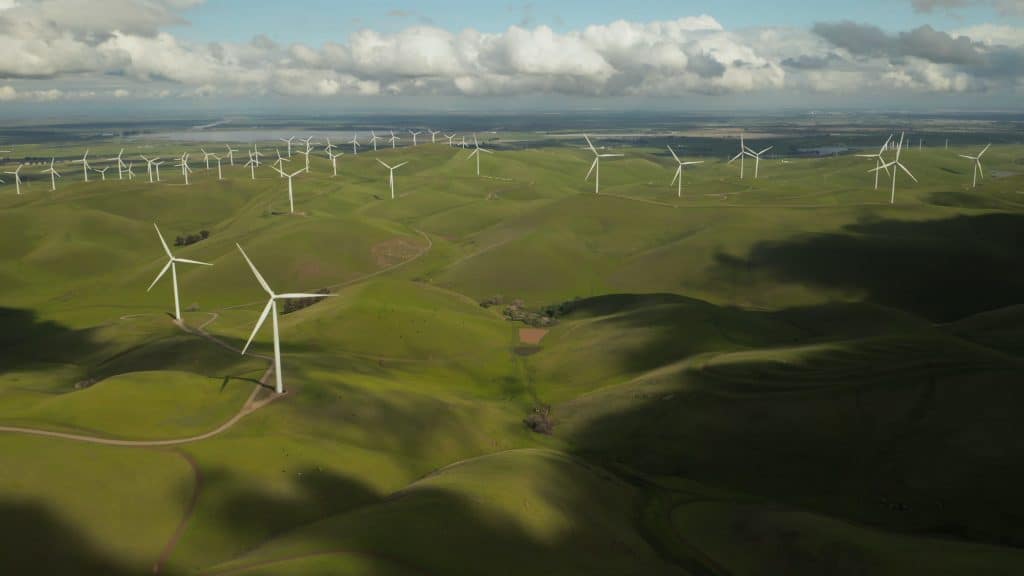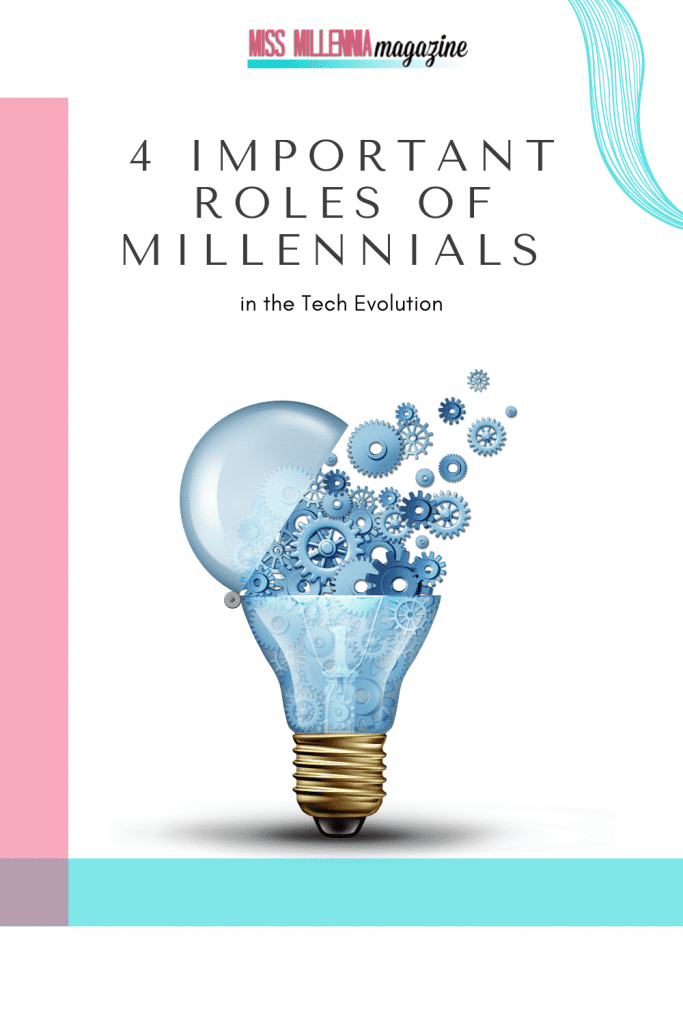4 Important Roles of Millennials in the Tech Evolution

The world of technology has made enormous leaps in the past two decades, largely thanks to millennials. The generation of “digital natives” grew up alongside technology, tapping at the controller of an NES, attending computer class in elementary school, and spending their high school evenings browsing prototypical social media platforms. In many ways, technology shaped the generation in its formative years.
Now, millennials are older (between 26 and 41 years old, according to most definitions), and it’s their turn to shape technology. In their prime working years, they occupy top positions at companies and exert a sizeable influence on consumer markets. They bring that tech-shaped mindset with them wherever they go.
In this article, let’s look at a few ways millennials have driven tech evolution – as users, consumers, innovators, and full-throated activists.
#1: Embracing Change, Spurring Adoption

The first (and perhaps most obvious) way millennials have catalyzed tech evolution is through their open-mindedness. This isn’t necessarily a generation that feels comfortable with the status quo; most millennials will embrace technological change if it can demonstrate clear benefits.
An obvious example is the litany of cellphone generations and updates – a direct response to millennial consumers’ desire for incremental change. The cycle goes like this: Millennial consumers demand better technology; companies respond, and eventually, that better technology becomes the norm as other generations adopt it. A decade ago, smartphone penetration in the US was around 38%. According to Pew Research, it sits at an impressive 85%.
Beyond incremental innovation, millennials are behind the slate of “disruptive innovations” currently upending industries. In contrast to incremental innovation, disruptive innovation involves new market entrants leveraging emerging technologies that fundamentally restructure how an industry operates. A prominent example is Uber, which leveraged advanced mobile performance engineering to take on the taxi industry. Behind the scenes were millennial developers, engineers, and fast-adopting consumers.
#2: Bringing Technology to Stubborn Industries
Millennials are pretty bullheaded about fairness, transparency, democratization, and equity. However, they have a clear code of ethics and don’t “grit their teeth” when industries try to evade responsibility. Instead, they leverage new technological innovations to improve those industries as consumers or thought leaders.
Take Nobul as a good example, a digital marketplace disrupting the real estate industry. Real estate has traditionally had a reputation for being opaque, challenging, and occasionally indifferent to consumer concerns. So, millennials turned to Nobul for support. The marketplace allows consumers to vet their options for real estate agents, browse relevant listings, access market conditions resources, and hold the entire process accountable. “Most of the people coming to our platform are millennials,” said CEO Regan McGee in an interview with The Globe and Mail. They don’t have a relationship with some real estate agent who got their license back in the seventies.
Speaking to Superb Crew, McGee also said: “Nobul brings choice, accountability, and transparency to an industry that has – for decades – been widely regarded by homebuyers as opaque and challenging… Incidentally, technological advancements are beginning to gain real traction in a stalwart industry that was initially skeptical.” But, of course, that traction is primarily thanks to millennials.
#3: Demanding Social Change and Sustainability
According to a Nielsen report, most millennials would pay more for sustainable products. And according to a Deloitte survey, “social issues” are a significant motivating factor in millennial decision-making.
How do millennials approach issues of sustainability and social change? The same way they do everything: through technology. The recent “green tech” boom has seen several fast advancements in environmental technology, and pioneering tech companies are using technology to engage communities, raise funds for social issues, and even envision more equitable urban centers.

Beyond innovating in green and “social tech” spaces, millennials also affect positive change by voting with their wallet. They send clear messages to tech companies about the kinds of eco-conscious and equitable practices they expect – by opting or opting out of transactions.
#4: Introducing the Workplaces of the Future
So far, this article has discussed millennials as consumers, innovators, and early adopters. But what about their role in the workplace? As employees, millennials have also shaped the tech evolution, helping to bring several tech-forward solutions to the modern workplace.
“Millennials have the reputation of complaining about the technologies their organizations provide them for their work,” says Gartner analyst Whit Andrews. As a result, they are “heavy users of organization-tolerated technologies that may not be approved, and also technologies that are not officially allowed at all.” This individuality, openness, and – yes – even disobedience has an envelope-pushing effect on organizations, forcing them to confront and absorb new technologies. If it weren’t for millennials, who knows whether workplaces would have wholeheartedly embraced remote digital solutions like Zoom and Slack during the pandemic?
In summary, millennials deserve credit for transferring their principles (transparency, environmentalism, open-mindedness, etc.) onto the tech landscape. As innovators, they’ve pushed the boundaries of what’s possible in technology. Consumers have perennially argued for more accountability and choice through technological solutions. And millennials in the workplace are a driving force behind the organizational adoption of new technologies.
